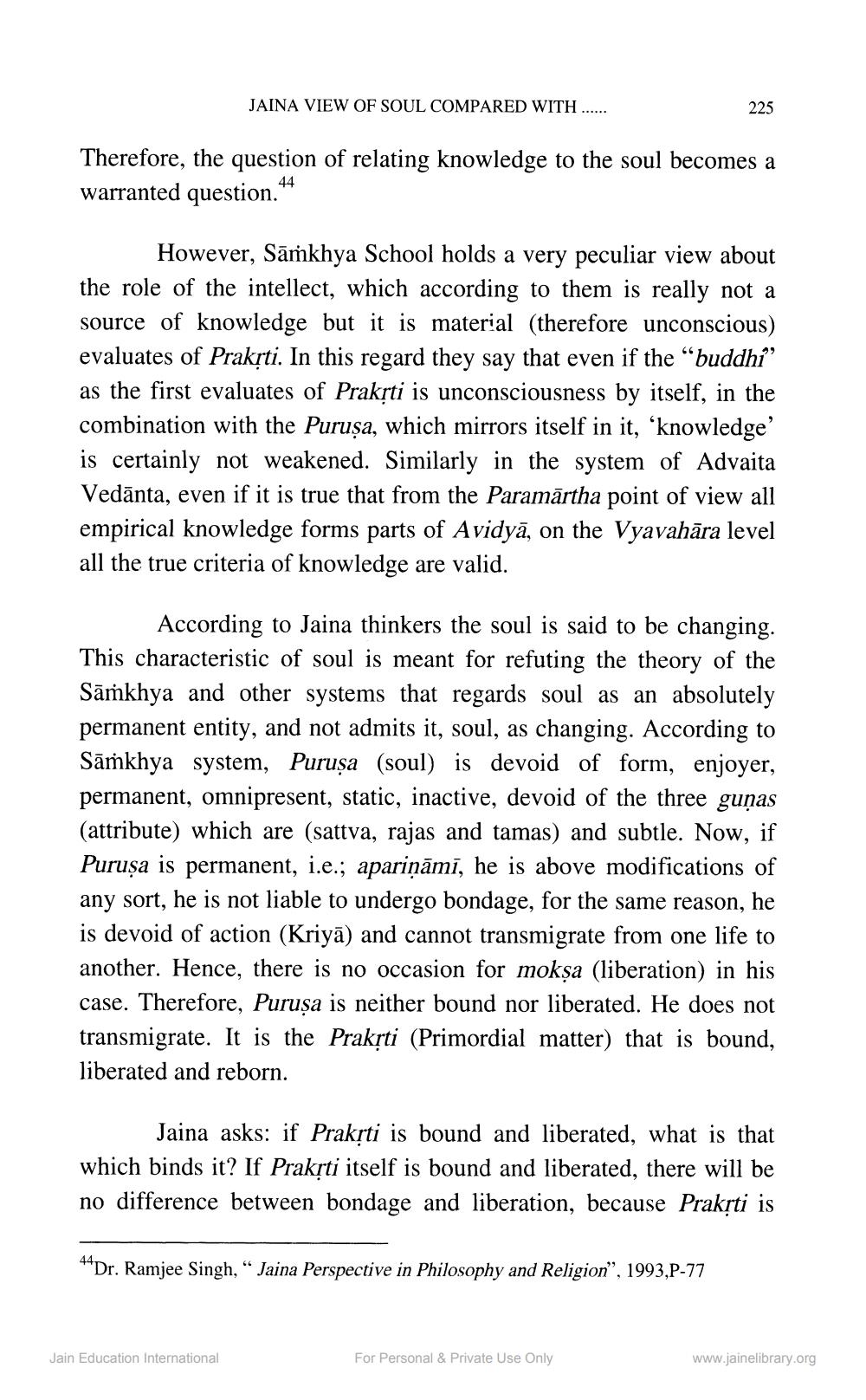________________
JAINA VIEW OF SOUL COMPARED WITH ......
225
Therefore, the question of relating knowledge to the soul becomes a warranted question.44
However, Sāmkhya School holds a very peculiar view about the role of the intellect, which according to them is really not a source of knowledge but it is material (therefore unconscious) evaluates of Prakrti. In this regard they say that even if the “buddhi? as the first evaluates of Prakrti is unconsciousness by itself, in the combination with the Puruşa, which mirrors itself in it, “knowledge' is certainly not weakened. Similarly in the system of Advaita Vedānta, even if it is true that from the Paramārtha point of view all empirical knowledge forms parts of Avidyā, on the Vyavahāra level all the true criteria of knowledge are valid.
According to Jaina thinkers the soul is said to be changing. This characteristic of soul is meant for refuting the theory of the Sāmkhya and other systems that regards soul as an absolutely permanent entity, and not admits it, soul, as changing. According to Sāṁkhya system, Purușa (soul) is devoid of form, enjoyer, permanent, omnipresent, static, inactive, devoid of the three guņas (attribute) which are (sattva, rajas and tamas) and subtle. Now, if Purușa is permanent, i.e.; apariņāmī, he is above modifications of any sort, he is not liable to undergo bondage, for the same reason, he is devoid of action (Kriyā) and cannot transmigrate from one life to another. Hence, there is no occasion for mokṣa (liberation) in his case. Therefore, Puruşa is neither bound nor liberated. He does not transmigrate. It is the Prakrti (Primordial matter) that is bound, liberated and reborn.
Jaina asks: if Praksti is bound and liberated, what is that which binds it? If Prakrti itself is bound and liberated, there will be no difference between bondage and liberation, because Praksti is
**Dr. Ramjee Singh, “Jaina Perspective in Philosophy and Religion”, 1993,P-77
Jain Education International
For Personal & Private Use Only
www.jainelibrary.org




